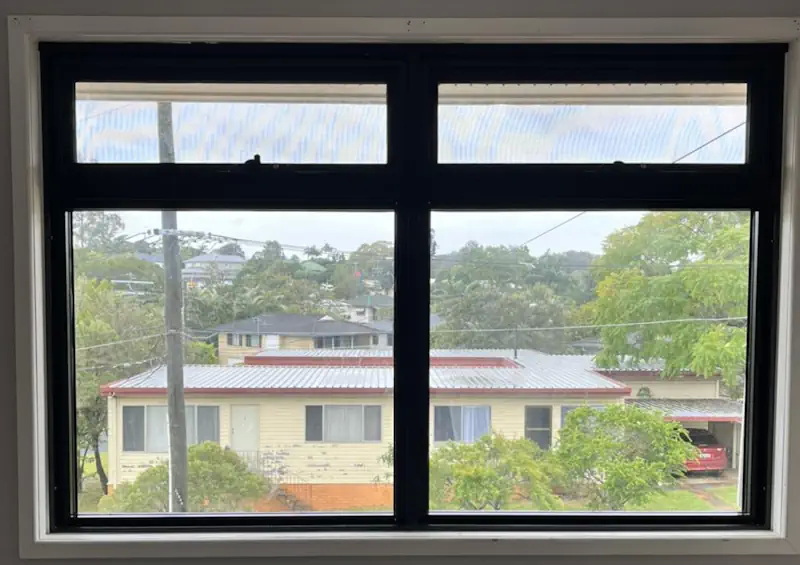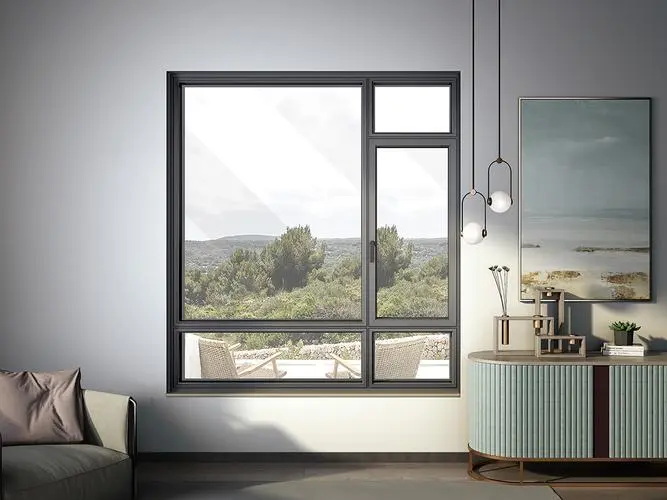English


Views: 222 Author: Dream Publish Time: 2025-01-19 Origin: Site











Content Menu
● Understanding Vinyl and Aluminum Windows
● Performance in Extreme Weather Conditions
● Noise Reduction Capabilities
● FAQ
>> 1. What is the lifespan of vinyl vs. aluminum windows?
>> 2. Are vinyl windows more energy-efficient than aluminum?
>> 3. Which type of window requires more maintenance?
>> 4. Can I customize the color of my windows?
>> 5. Which window type is better for coastal areas?
When it comes to selecting windows for your home, the choice between vinyl and aluminum can be daunting. Each material has its unique advantages and disadvantages, making it essential to understand their differences to make an informed decision. This article will delve into various aspects of vinyl and aluminum windows, including durability, energy efficiency, maintenance, aesthetics, and cost. By the end of this comprehensive guide, you should have a clearer understanding of which option might be better suited for your needs.

Vinyl windows are made from polyvinyl chloride (PVC), a synthetic material known for its durability and low maintenance. On the other hand, aluminum windows are crafted from metal, providing strength and a sleek appearance. Both options come in various styles and colors, allowing homeowners to customize their choices according to their preferences.
Vinyl Windows:
- Resistant to weathering and corrosion.
- Do not rust or rot.
- Generally last between 15 to 20 years.
Aluminum Windows:
- Extremely strong and durable.
- Can last up to 50 years with proper care.
- Susceptible to dents and scratches.
Comparison:
While aluminum windows may last longer overall, vinyl windows are more resistant to environmental factors like moisture and UV rays, making them a better choice in harsh climates. Additionally, aluminum frames can chip or dent easily; any damage is more visible compared to vinyl frames that maintain their appearance even if scratched due to their uniform material composition.
Vinyl Windows:
- Excellent insulation properties due to multi-chambered frames.
- Lower heat transfer leads to reduced energy costs.
- Ideal for both hot and cold climates.
Aluminum Windows:
- Generally less energy-efficient due to metal's conductive nature.
- Modern aluminum windows may feature thermal breaks that improve insulation but still lag behind vinyl.
Comparison:
Vinyl windows are the clear winner in terms of energy efficiency, making them a popular choice among homeowners looking to reduce their energy bills. The insulation properties of vinyl significantly contribute to maintaining indoor temperatures, which is particularly beneficial in regions with extreme weather conditions.
Vinyl Windows:
- Require minimal maintenance; just soap and water for cleaning.
- Do not need painting or staining.
Aluminum Windows:
- Require occasional painting or sealing due to susceptibility to corrosion.
- Need regular cleaning to prevent rust and maintain appearance.
Comparison:
Vinyl windows win in this category as they require significantly less upkeep compared to aluminum. Homeowners appreciate the low-maintenance aspect of vinyl as it allows them more time for other activities rather than worrying about window care.

Vinyl Windows:
- Available in various colors and finishes.
- Can mimic the look of traditional wood frames.
Aluminum Windows:
- Thinner frames allow for larger glass areas.
- Sleek, modern appearance that complements contemporary architecture.
Comparison:
Your choice here depends on personal preference. If you prefer a classic look with more color options, vinyl may be better. If you favor a modern aesthetic with slimmer profiles, consider aluminum. Additionally, advancements in manufacturing have allowed for more customized designs in both materials, enhancing their appeal.
Vinyl Windows:
- Generally more affordable than aluminum.
- Average installation costs are lower due to ease of installation.
Aluminum Windows:
- Higher upfront costs due to material expenses.
- Potentially lower long-term maintenance costs if well cared for.
Comparison:
Vinyl windows are typically the more budget-friendly option at the outset, while aluminum might offer longevity that could save money in the long run. On average, homeowners can expect to pay about $3,156 for six vinyl replacement windows versus about $4,668 for six aluminum replacement windows.
Both materials have environmental considerations:
Vinyl:
- Made from PVC, which is not biodegradable but can be recycled by some manufacturers.
Aluminum:
- 100% recyclable without loss of quality.
- Production is energy-intensive but has a lower long-term environmental impact due to recyclability.
When considering environmental impact, it's essential also to think about the entire lifecycle of the window materials. Vinyl production has raised concerns about its carbon footprint during manufacturing processes. In contrast, while aluminum requires significant energy for production, its recyclability makes it an environmentally friendly option in the long term as it can be reused multiple times without degrading its quality.
Vinyl Windows:
- Good security features with multi-point locking systems.
Aluminum Windows:
- Stronger material provides enhanced security against break-ins.
Comparison:
For homeowners concerned about security, aluminum may offer a slight advantage due to its strength. However, both materials can be equipped with robust locking systems that enhance safety. Many manufacturers now offer advanced locking mechanisms that further improve security across both types of windows.
The installation process can also vary between vinyl and aluminum windows:
Vinyl Windows:
- Generally lighter than aluminum frames.
- Easier to handle during installation due to flexibility.
Aluminum Windows:
- Heavier frames require careful handling during installation.
Comparison:
Vinyl windows tend to be easier and quicker to install because they are lighter and more flexible. This can lead to lower labor costs during installation compared to heavier aluminum frames. Additionally, many homeowners report that vinyl installations cause less disruption during the process since they can often be fitted into existing frames without extensive modifications.
Understanding how each window type performs under extreme weather conditions is crucial:
Vinyl Windows:
- Can warp or expand under extreme heat but generally perform well in most climates.
- Not ideal for areas with extreme temperature fluctuations over time.
Aluminum Windows:
- More resilient in high winds and storms due to their strength.
- Can conduct heat or cold leading to condensation issues in extreme climates.
Comparison:
While aluminum performs better under high-stress conditions like storms or hurricanes, vinyl windows are generally better suited for energy efficiency across various climates. Homeowners living in areas prone to severe weather may want to consider investing in impact-resistant aluminum windows while those in milder climates could benefit from the insulating properties of vinyl windows.
Another aspect worth considering is how each window type handles noise:
Vinyl Windows:
- Provide excellent sound insulation due to their multi-chambered design.
- Often include double or triple-pane glass options that further reduce noise transmission.
Aluminum Windows:
- Generally provide less sound insulation unless upgraded with specific features like acoustic glass.
- Thinner frames may allow more noise infiltration compared to thicker vinyl frames.
Comparison:
For homeowners living in noisy urban environments or near busy roadways, vinyl windows may offer superior noise reduction capabilities compared to aluminum options unless specific soundproofing measures are taken with the latter.
The choice between vinyl and aluminum can also impact your home's resale value:
Vinyl Windows:
- Highly sought after by buyers looking for energy efficiency and low maintenance.
- May enhance curb appeal if chosen wisely regarding style and color.
Aluminum Windows:
- Appeal more towards modern aesthetics which can attract buyers interested in contemporary design.
- Long-lasting durability may be seen as a positive selling point by potential buyers looking for longevity.
Ultimately, both options can add value depending on your local market trends; however, investing in high-quality materials will always yield better returns when selling your home.
In conclusion, both vinyl and aluminum windows have their merits. Vinyl windows excel in energy efficiency, maintenance ease, cost-effectiveness, noise reduction capabilities, and aesthetic versatility. They are an excellent choice for homeowners looking for durability without extensive upkeep. On the other hand, aluminum windows offer superior strength and modern aesthetics that may appeal more to those seeking a contemporary look. They perform exceptionally well under extreme weather conditions but require more maintenance over time. Ultimately, the best choice depends on your specific needs, climate considerations, budget constraints, personal preferences regarding aesthetics and functionality as well as potential future resale value considerations.

Vinyl windows typically last between 15 to 20 years while aluminum can last up to 50 years with proper care.
Yes, vinyl windows provide better insulation properties than aluminum, leading to lower energy costs.
Aluminum windows require more maintenance than vinyl as they need occasional painting or sealing.
Yes, both vinyl and aluminum windows come in various colors; however, vinyl offers more options for finishes that mimic wood.
Vinyl is generally better suited for coastal areas as it is resistant to salt spray and does not corrode like aluminum can.
[1] https://www.fixr.com/articles/vinyl-vs-aluminum-windows
[2] https://archexteriors.com/vinyl-vs-aluminum-windows/
[3] https://advancedwindowsusa.com/vinyl-or-aluminum-windows-which-is-better
[4] https://discountdw.com/i-6142341-vinyl-picture-window.html
[5] https://unsplash.com/s/photos/aluminum-window
[6] https://www.greenbuildingadvisor.com/question/vinyl-windows-vs-aluminum
[7] https://paradigmwindows.com/vinyl-vs-aluminum-windows/
[8] https://houstonwindowexperts.com/vinyl-vs-aluminum-window/
[9] https://www.marvin.com/blog/vinyl-aluminum-differences
[10] https://porchlifedirect.com/product/4-track-memory-vinyl-windows/
[11] https://www.freepik.com/free-photos-vectors/aluminum-window
[12] https://www.sierrapacificwindows.com/Videos/List/How-To-Install
[13] https://www.angi.com/articles/pros-and-cons-aluminum-vs-vinyl-windows.htm
[14] https://www.novaexteriors.com/blog/evaluating-pros-cons-of-different-window-materials/
[15] https://www.pgtwindows.com/blog/when-choosing-a-window-frame/
[16] https://www.bobvila.com/articles/vinyl-vs-aluminum-windows/
[17] https://www.mhiwindows.com/vinyl-windows-advantages-disadvantages/
[18] https://www.optimalwindows.com/vinyl-vs-aluminum-windows-optimal-windows-plano/
[19] https://www.istockphoto.com/de/bot-wall?returnUrl=%2Fde%2Fphotos%2Faluminum-windows
[20] https://www.reddit.com/r/HomeImprovement/comments/taaurv/how_hard_is_it_to_replace_windows/
[21] https://www.istockphoto.com/de/bot-wall?returnUrl=%2Fde%2Fphotos%2Fvinyl-flooring
[22] https://www.blevinsinc.com/catalog/shop/WINDOWS/Aluminum/Vertical/dept-26T?a=1
[23] https://harveywindows.com/windows/single-hung/slimline-vinyl-single-hung-window
[24] https://www.istockphoto.com/de/bot-wall?returnUrl=%2Fde%2Fphotos%2Faluminum-window
[25] https://www.pinterest.com/pin/560205641133350671/
[26] https://www.istockphoto.com/de/bot-wall?returnUrl=%2Fde%2Fphotos%2Fluxury-vinyl-flooring
Seven Requirements for External Doors And Windows of Passive Rooms
How Much Do You Know about The Design Standards for Aluminum Alloy Door And Window Dimensions?
Welding Vs Stainless Steel Fabrication: Understanding The Manufacturing Process Differences
Stainless Steel Fabrication Vs Powder Coated Steel: Durability And Cost Comparison
CNC Machining Vs Stainless Steel Fabrication: Pros And Cons for Industrial Use
Stainless Steel Fabrication Vs Carbon Steel Fabrication: Key Differences Explained
Stainless Steel Fabrication Vs Aluminum Fabrication: Which Is Right for Your Project?
Stainless Steel Grades 201 Vs 304: Cost Vs Performance Breakdown
316L Vs 316 Stainless Steel Grades: Which Is Better for Corrosion Resistance?
Comparing Austenitic Vs Martensitic Stainless Steel Grades: What You Need To Know?
